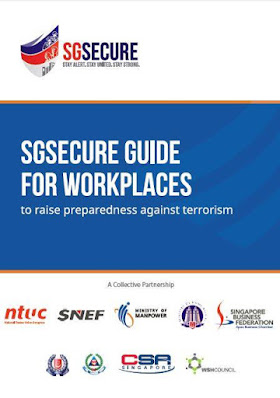Separate the two functions of the Attorney-General and let the prosecutorial function be undertaken by an independent candidate appointed by the President.
By Walter Woon, Published The Straits Times, 29 Sep 2017
The Attorney-General occupies the hottest legal seat in Singapore. This is because the Attorney-General is the public prosecutor. Under Article 35(8) of the Constitution, the Attorney-General "shall have power, exercisable at his discretion, to institute, conduct or discontinue any proceedings for any offence".
In recent times, we have seen the president of a country, which is not shy about wagging its finger at others while lecturing about the rule of law, threatening to remove prosecutors and special counsel when investigations cut too close to the bone for comfort.
Closer to home, there has also been loose chatter online and off that question the Attorney-General's decisions to prosecute. This is based on a misunderstanding of the Attorney-General's function as public prosecutor. Ignorant criticism is unfair to the Attorney-General and his officers. Misinformation, deliberate or otherwise, erodes confidence in the system of justice.
It is necessary first to understand the nature of prosecutorial discretion. As a preliminary matter, a distinction must be made between a prosecution and a civil suit. When a person defames someone else, for instance, the "injured" party (the plaintiff) may seek compensation by means of a civil suit.
The public prosecutor is not involved in this. The commencement of civil litigation is a matter solely for the plaintiff. No one can stop him from suing. If he wins, he gets compensation (which does not have to be a substantial sum). If he loses, he pays the defendant's costs.
Criminal defamation is an offence under the Penal Code. It is up to the Attorney-General to decide whether or not to lay charges. This is termed a prosecution, in contrast to civil proceedings. The object is not to obtain compensation for an injured party but rather to protect society's interests by imposing some sort of punishment, often as a deterrent to others.
As provided in the Constitution, the Attorney-General has discretion over this. The accused person (defendant) and the injured party (complainant) are not involved in the decision. The defendant might tender an apology and offer to pay damages to the complainant, but the public prosecutor may decide to press on regardless if he thinks that there is a public-interest issue involved. The complainant cannot "drop the charges", contrary to popular misconception.
By Walter Woon, Published The Straits Times, 29 Sep 2017
The Attorney-General occupies the hottest legal seat in Singapore. This is because the Attorney-General is the public prosecutor. Under Article 35(8) of the Constitution, the Attorney-General "shall have power, exercisable at his discretion, to institute, conduct or discontinue any proceedings for any offence".
In recent times, we have seen the president of a country, which is not shy about wagging its finger at others while lecturing about the rule of law, threatening to remove prosecutors and special counsel when investigations cut too close to the bone for comfort.
Closer to home, there has also been loose chatter online and off that question the Attorney-General's decisions to prosecute. This is based on a misunderstanding of the Attorney-General's function as public prosecutor. Ignorant criticism is unfair to the Attorney-General and his officers. Misinformation, deliberate or otherwise, erodes confidence in the system of justice.
It is necessary first to understand the nature of prosecutorial discretion. As a preliminary matter, a distinction must be made between a prosecution and a civil suit. When a person defames someone else, for instance, the "injured" party (the plaintiff) may seek compensation by means of a civil suit.
The public prosecutor is not involved in this. The commencement of civil litigation is a matter solely for the plaintiff. No one can stop him from suing. If he wins, he gets compensation (which does not have to be a substantial sum). If he loses, he pays the defendant's costs.
Criminal defamation is an offence under the Penal Code. It is up to the Attorney-General to decide whether or not to lay charges. This is termed a prosecution, in contrast to civil proceedings. The object is not to obtain compensation for an injured party but rather to protect society's interests by imposing some sort of punishment, often as a deterrent to others.
As provided in the Constitution, the Attorney-General has discretion over this. The accused person (defendant) and the injured party (complainant) are not involved in the decision. The defendant might tender an apology and offer to pay damages to the complainant, but the public prosecutor may decide to press on regardless if he thinks that there is a public-interest issue involved. The complainant cannot "drop the charges", contrary to popular misconception.

















